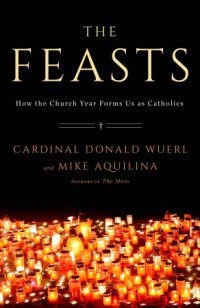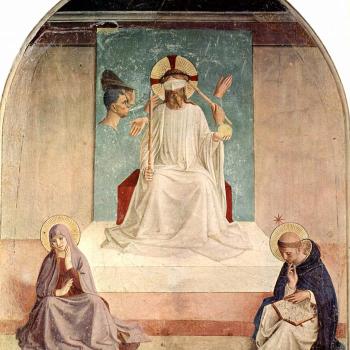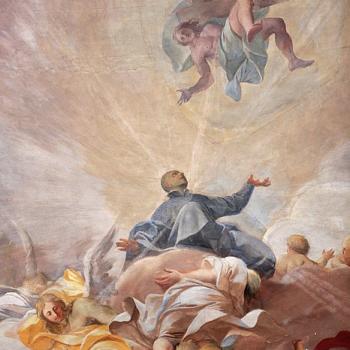 The latest book by Mike Aquilla and Donald Cardinal Wuerl came out this week. It is called, the Feasts, and it is truly a great book. There are a lot of books on the market that attempt to highlight aspects of the Church year, and I was somewhat skeptical about what this book could bring to the table that others had not been able to do. However, my misgivings were quite unfounded. This volume is the perfect introduction to the Church calendar. It is both assessable to the novice, and yet continues a theological and historical depth and precision that I found very little fault with. As part of its release I was invited to share a little bit about my own experience with the Church year as it related to one of the feasts.
The latest book by Mike Aquilla and Donald Cardinal Wuerl came out this week. It is called, the Feasts, and it is truly a great book. There are a lot of books on the market that attempt to highlight aspects of the Church year, and I was somewhat skeptical about what this book could bring to the table that others had not been able to do. However, my misgivings were quite unfounded. This volume is the perfect introduction to the Church calendar. It is both assessable to the novice, and yet continues a theological and historical depth and precision that I found very little fault with. As part of its release I was invited to share a little bit about my own experience with the Church year as it related to one of the feasts.
I choose to reflect on The Solemnity of Epiphany (where the west primarily remembers the coming of the Magi who followed the new light in the world) and the Feast of the Baptism of the Lord. In many ways these are two feasts that are near and dear to my heart.
Historically both celebrated on the same day, in the West the migrated away from one another. Although they are no longer located in the same place in the Latin tradition, I think it is essential to remember their shared message, as well as their connection to the celebration of the Nativity of the Lord. All three of these days reflect upon the incarnation.
Epiphany traditionally offers a way to reflect on the universal cause of redemption found in Jesus. The magi were not Jewish, but gentile, yet they were led to find and worship God in Christ. Jesus is not simply the messiah for Israel but the fulfillment of the promise that all nations would be blessed through Abraham. Traditionally artwork that depicts these magi shows three men, one from Asia, one from Europe, and one from Africa. Each man also represents a different stage in life. One is young, one is old, and one is middle-aged. God is in the business of saving all of us in Jesus.
The feast of Christ’s baptism is also a feast of the incarnation. In this feast we remember that when Jesus was baptized in the Jordan he initiated a cosmic relationship to his work. In baptism the means of grace are not simply spiritual, or intellectual, but physical as well. The incarnation demonstrates that God is not in the business of saving us from the physical work (like the Gnostics of old taught) but is actually saving renewing all of creation. There is nothing that shows God’s interest in using the stuff of the world in his work to unite us with his divine life like the baptism.
One of the reasons that I love the Church year is that it allows the natural cycles of our lives and seasons to tell us the amazing story of the Gospel every year. If you would like to learn more about the Church year and how it can help you to deepen your life with God I recommend picking up a copy of the Feasts. You will not regret it.












